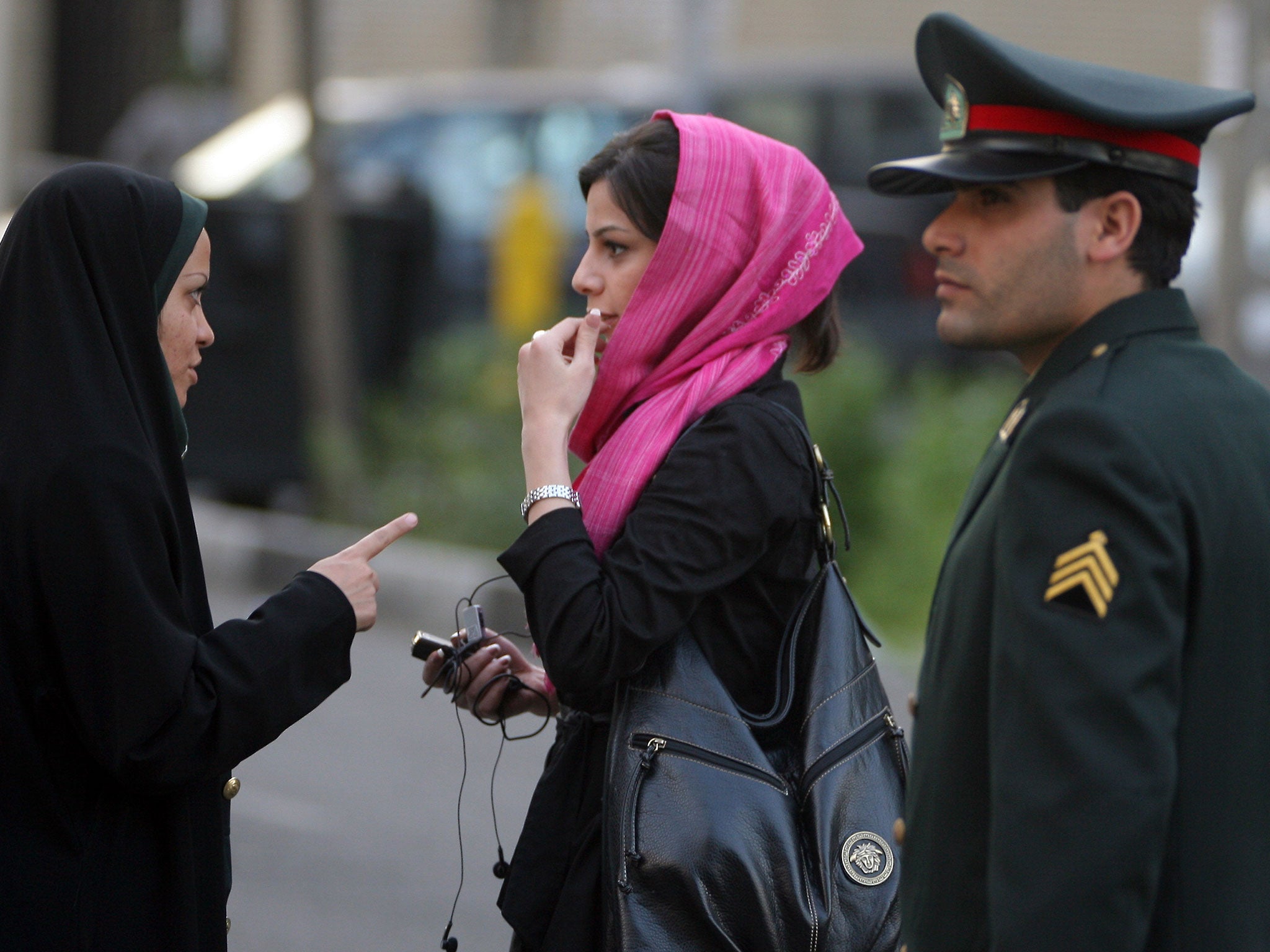Iranian women arrested for posting 'vulgar' photos on Instagram without wearing headscarves
A model who was among the eight arrested was forced to publicly apologise

Your support helps us to tell the story
From reproductive rights to climate change to Big Tech, The Independent is on the ground when the story is developing. Whether it's investigating the financials of Elon Musk's pro-Trump PAC or producing our latest documentary, 'The A Word', which shines a light on the American women fighting for reproductive rights, we know how important it is to parse out the facts from the messaging.
At such a critical moment in US history, we need reporters on the ground. Your donation allows us to keep sending journalists to speak to both sides of the story.
The Independent is trusted by Americans across the entire political spectrum. And unlike many other quality news outlets, we choose not to lock Americans out of our reporting and analysis with paywalls. We believe quality journalism should be available to everyone, paid for by those who can afford it.
Your support makes all the difference.Eight women have been arrested in Iran as part of a crackdown on women posting photographs online without wearing the compulsory headscarf.
Among them was Elham Arab, a model known for her distinctive blonde hair and wedding dress portraits, who was made to issue a public apology in footage broadcast on state television.
Questioned by Abbas Jafari Dowlatabadi, the prosecutor general of Tehran, she was accused of “promoting western promiscuity” on Monday.
“All people love beauty and fame,” Ms Arab said, wearing a black headscarf with her hair dyed brown.
“They would like to be seen, but it is important to know what price they will pay to be seen…a model will certainly lose her hijab and honour.”
Her Instagram page has been shut down, along with those belonging to the seven other arrested women, along with Facebook pages and business websites.
Melikaa Zamani, Niloofar Behboudi, Donya Moghadam, Dana Nik, Shabnam Molavi, Elnaz Golrokh and Hamid Fadaei were named as those detained, although authorities did not confirm the names and at least two of the women are believed to have fled Iran.
More arrests are expected as part of “Operation Spider II”, which Iranian authorities said aims to defend “honour” for Muslims, protect Islamic and national identity and exclude “unhealthy” online content.
Instagram was singled out in particular for spreading “vulgar and sometimes obscene images of professional and amateur models”, a report by Fars news agency said.
Officials said 170 people had so far been identified by tracing posts, including 58 models, 59 photographers and makeup artists, accusing them of “enticing” young people and damaging their morals.
They equated professional modelling with “promoting the normalisation of promiscuity” and said women posing “half-naked” were attracting boys and girls to enter the trade.
Families were being urged to prevent relatives making or viewing the images, while Iranian citizens were told to report violations to authorities online.
“We must fight with enemy's actions in this area,” Mr Dowlatabadi was quoted by the state-owned Iran newspaper as saying. “Of course our actions in this area will continue.”
The arrests caused uproar following the detention of artists, poets, journalists and activists as moderate President Hassan Rouhani's administration secured a landmark nuclear deal with world powers.
The sentences handed down signal that hard-liners in the police and judiciary, who were unable to stop the accord and fear looser social norms will weaken the Islamic Republic, still hold significant power in the country.
Among the groups protesting was My Stealthy Freedom – an online movement started by journalist Masih Alinejad that encourages women in Iran to post photos of themselves online without headscarves.
Hundreds of Iranian women have had images posted on the group’s Facebook page, which has grown to have almost a million followers since the campaign started two years ago, and tourists are now being encouraged to do the same.
It is illegal for women to go out in public without wearing headscarf in the country, where thousands of undercover agents and “morality police” patrol the streets to check for violations.
Women found to have their hair or bodies inadequately covered can be publicly admonished, fined or even arrested.
Iranian women have been increasingly wearing the mandatory hijab more loosely on their heads, particularly in the capital, sparking outrage from conservatives in the Islamic Republic.
Last month, police announced the deployment of 7,000 plainclothes male and female officers in Tehran to enforce the country’s dress code.
A crackdown on freedom of expression online is also underway in Iran, where around 40 per cent of its population have access to the censored and filtered internet.
Journalists, filmmakers, writers and activists have been detained, sentenced or imprisoned, with the latest being Mahdi Boutorabi, the manager of Iranian blogging service persianblog.ir.
Additional reporting by AP
Join our commenting forum
Join thought-provoking conversations, follow other Independent readers and see their replies
Comments